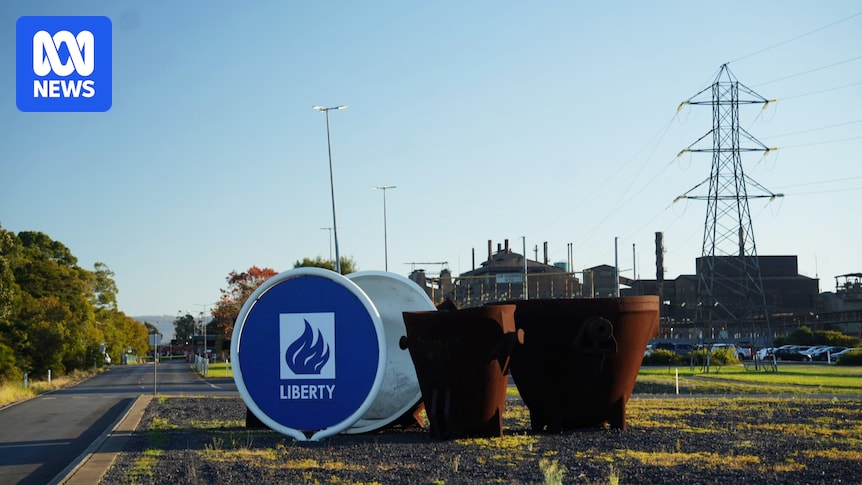ASIC Intensifies Scrutiny on Sanjeev Gupta's Liberty Bell Bay Amidst Financial Reporting Failures & Smelter Crisis
 Australia
Business & Finance
Australia
Business & Finance

ASIC is pursuing Sanjeev Gupta's Liberty Bell Bay over overdue financial reports, revealing dire financial health and a proposed lease deal. The Tasmanian smelt
ASIC Targets Sanjeev Gupta's Liberty Bell Bay Amidst Financial Reporting Crisis
The Australian corporate watchdog, the Australian Securities and Investments Commission (ASIC), is poised to consider further enforcement action against Liberty Bell Bay, a critical Australian entity within UK billionaire Sanjeev Gupta's GFG Alliance. This development follows a decisive ruling by the NSW Supreme Court, which rejected the company's plea for additional time to submit its long-overdue financial reports.
Regulatory Scrutiny Intensifies
Liberty Bell Bay, responsible for operating Australia's only manganese alloy smelter in northern Tasmania, is a private company with a statutory obligation to file annual financial reports with ASIC. However, it failed to meet these requirements between 2021 and 2024, prompting regulatory intervention. Following court action initiated by ASIC in June, the NSW Supreme Court mandated in July that the outstanding reports be lodged by October. Despite two subsequent deadline extensions, Justice Ashley Black ultimately dismissed a third request, ordering Liberty Bell Bay to cover ASIC's legal costs. This decision now places the ball firmly in ASIC's court, as the regulator contemplates whether to initiate further civil or criminal proceedings.
ASIC's deputy chair, Sarah Court, recently underscored the regulator's commitment, stating that financial reporting misconduct, including the failure to lodge reports, would be an enforcement priority for 2026. University of Sydney insolvency expert Professor Jason Harris highlighted the inherent risks of such non-compliance: "Usually you're not lodging your reports because you can't, and that never sends a good picture to the regulator, or indeed to the public." He questioned whether these delays signal inadequate record-keeping or a deliberate attempt to defer the disclosure of severe financial distress. Professor Harris strongly advocated for ASIC to persist with its actions to ensure crucial financial information is brought to light.
Broader Financial Woes of the GFG Alliance
Beyond the immediate court case, Liberty Bell Bay's 2025 financial reports, due by the end of October, also remain unfiled, exacerbating concerns about the smelter's financial standing and long-term viability. The broader context of Gupta's GFG Alliance is equally troubling.
GFG Alliance acquired the Tasmanian smelter in 2020, just before the collapse of its primary lender, Greensill Capital. This global event had profound repercussions, leading to mine closures and thousands of job losses across Gupta's extensive international business network. Professor Harris described Gupta's global empire as "financially dire," noting a history of government bailouts, international prosecutions, and multiple insolvencies within its various businesses.
Specific examples of this instability include the South Australian government's intervention to place the Whyalla Steelworks into administration earlier this year, facing over $1 billion in creditor debts. Similarly, the Tahmoor coal mine experienced a severe cash crunch, struggling to pay suppliers and leading to worker stand-downs. Liberty Bell Bay itself suspended operations in June, citing initial issues with ore supply and sending its workforce home on paid leave. However, even when ore became available from its Northern Territory supplier, the company lacked the necessary cash to procure it. Production at the smelter remains suspended, with significant stockpiles of ore unused and suppliers reportedly owed millions.
A Perilous Financial State and a Surprise Proposal
A recent report by the Whyalla Ports administrators offered a stark assessment of Liberty Bell Bay's financial health, indicating an $80.3 million net loss in June and a capital deficiency exceeding $120 million. The company attributed its operational challenges and financial struggles to a combination of factors: inconsistent ore supply due to its main supplier's earlier force majeure, a significant downturn in market conditions from global manganese oversupply, and escalating energy and transport costs affecting many Australian businesses.
Under mounting pressure to resume operations, Liberty Bell Bay recently announced an unexpected proposal: a memorandum of understanding with Steel International Trading Company (SITC), an exports firm based in Georgia. This proposed arrangement envisions SITC operating the smelter under a lease for up to five years, promising to inject crucial working capital and secure access to key raw materials. While Forbes lists SITC as a significant entity in the former Soviet state, Professor Harris characterized the proposal as "extraordinary and unprecedented," highlighting the general lack of public information about SITC's operational experience in running smelters.
Government Oversight and Worker Uncertainty
Given the Tasmanian government holds first-ranking security over the smelter asset, any lease or change of control proposal requires its explicit consent under the terms of its loan. Tasmanian Minister for Business, Industry and Resources, Felix Ellis, confirmed that the government had been notified by Liberty Bell Bay and would undertake due diligence processes. Professor Harris advised the government to pose "lots of questions" regarding the sudden nature of this proposal and the apparent lack of prior consultation.
The smelter, which typically employs around 250 full-time staff, has seen its workforce shrink to approximately 200, as some employees have sought more stable employment amidst the uncertainty. Robert Flanagan from the Australian Workers' Union described the past six months as a "rollercoaster" for workers, who are hopeful for a resumption of production. George Town Mayor Greg Kieser, while acknowledging the smelter's history of shutdowns over 60 years, expressed a distinct underlying sense of anxiety, describing the current situation as "perilous." Professor Harris concluded that, without government intervention in the form of a bailout or the emergence of a new owner with substantial resources, the future for the smelter, set against the broader GFG Alliance picture, appears "pretty grim."
